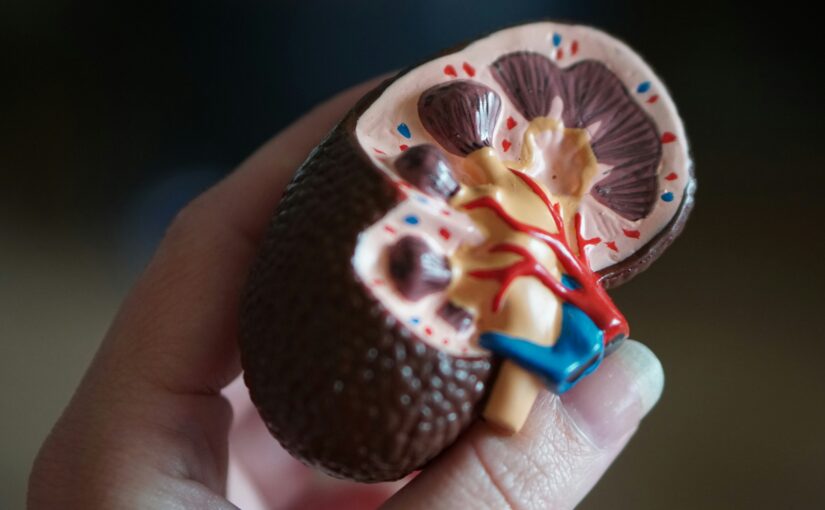A recent report released by Diabetes Australia1 shows a significant rise in diabetes-related kidney disease and the impacts it is having on both patients and the healthcare system, with one in four (330,000 people) living with diabetes being affected.
According to Diabetes Australia, 10,249 Australians living with diabetes are now undergoing kidney replacement therapy, including dialysis, each year.
More than 1.5 million Australians live with diabetes, which can lead to serious complications including kidney disease.
With diabetes patients on dialysis accounting for approximately 5% of all hospitalisations, this has a significant impact on hospital capacity countrywide.
Earlier detection of kidney disease could save the Australian economy an estimated $500M per annum.2
Pathology Awareness Australia (PAA) ambassador Professor Graham Jones, a chemical pathologist who specialises in pathology testing for kidney disease, is encouraging people living with diabetes to get regular kidney checks to prevent the onset of kidney disease. Prof Jones said:
“Laboratory tests for the detection of kidney disease are crucial as it does not show clinical symptoms in its initial stages. For people living with diabetes, regular blood and urine tests play a vital role in identifying and monitoring from early onset.
“Staying proactive by scheduling GP check-ups is important to ensure timely diagnosis of kidney disease. If caught early, effective measures can be taken to prevent or slow down further kidney damage. Neglecting the condition can lead to kidney failure, dialysis, and in some cases, a kidney transplant may be required.”
Simple blood and urine checks, along with blood pressure checks, can effectively monitor kidney function and allow for early treatment, reducing the chance that people living with diabetes will require dialysis or kidney transplant.
While more than 300 Australians with diabetes currently receive a kidney transplant every year, a huge 2,024 people living with diabetes in Australia die from kidney disease each year, a concerning number for a mostly preventable condition.
PAA, Diabetes Australia and Kidney Health Australia say it is important for people with diabetes to work with their diabetes care teams and schedule annual kidney health checks.
Justine Cain, Group CEO of Diabetes Australia, said:
“More than 10,000 Australians living with diabetes are currently undergoing kidney replacement therapy. Most kidney failure can be prevented with early intervention; however, just under a quarter (23%) of people are getting their kidneys checked within recommended timeframes.”
Kidney disease occurs when the filters inside the kidneys become damaged and can no longer filter the blood properly. This can cause waste products to build up in the body and may progress to kidney failure, which in turn requires dialysis or a kidney transplant for survival.
In its earlier stages, kidney disease can be managed by various lifestyle changes, along with medication which can slow progression. Chris Forbes, CEO of Kidney Health Australia, said:
“We are championing early detection and prevention of progression of kidney disease for all Australians, with a special focus on those at greatest risk – those living with diabetes, cardiovascular disease, and high blood pressure.
“Kidney Health Australia is leading the fight to identify the 1.8 million Australians unaware they have kidney disease and help them, and their families manage the condition more effectively from start to end. We’ve developed a holistic approach that goes beyond merely screening individuals. Early diagnosis, better treatment and support post-diagnosis go hand in hand for achieving best outcomes.
Our recent Deloitte Economics Access report exposes kidney disease as a national emergency, costing the Australian economy $9.9 billion each year, including $2.3 billion in direct costs to the health system. Now is the time to invest in kidney health, for everyday Aussies, the economy, the healthcare system, and the environment.”
Diabetes was an underlying or associated cause of death in more than 2,000 people living with chronic kidney disease in Australia in 2020.3
In the coming years, this is expected to increase due to the rising prevalence of type 2 diabetes and the strong association between it and diabetic kidney disease.4
According to PAA pathologist Prof Jones, regular laboratory testing for kidney damage is a key factor to improve the health of people living with diabetes.
References:
- https://www.diabetesaustralia.com.au/wp-content/uploads/2023-Diabetes-Related-Kidney-Disease-Report-1.4-DIGITAL.pdf
- https://kidney.org.au/uploads/resources/Changing-the-CKD-landscape-Economic-benefits-of-early-detection-and-treatment.pdf
- Australian Institute of Health and Welfare (2023) Chronic kidney disease: Australian facts, AIHW, Australian Government, accessed 11 June 2023.
- Reutens AT. Epidemiology of diabetic kidney disease. Med Clin North Am. 2013;97(1):1-18
Image credit: Robina Weermeijer on Unsplash

